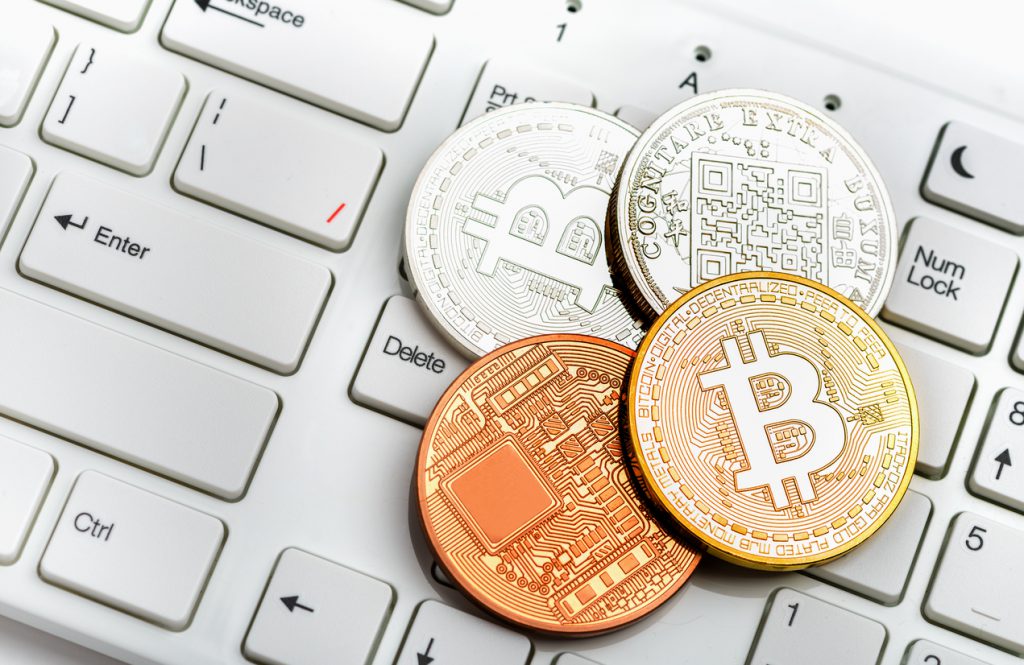
Chances are you’ve heard the term “Bitcoin” when it comes to discussions about finance. More than a buzzword, Bitcoin is quickly developing into a new force in currency and how we spend money. Understanding Bitcoin and its implications in the world of finance is important no matter what your line of business. Let’s take a closer look at basics of the bitcoin:
Bitcoin is a Digital Currency
Bitcoin is a digital currency, meaning there are no bills to print or actual coins to make. In other words, it is an electronic form of currency that has no physical presence. While other types of digital currency exist, the Bitcoin was the first, having been founded in 2009, and is the largest.
Bitcoin is Decentralized
There is no authority such as a government or an institution (bank) controlling Bitcoin! Owners of Bitcoin are anonymous. Buyers and sellers are connected through encryption keys and no names, social security numbers, or tax IDs are used. Bitcoins are stored in digital wallets, a type of virtual bank account. Digital wallets are stored in the cloud or on a user’s computer and are used to send, receive, or save money. Because the Bitcoin is not governed by a bank, the digital wallet is not protected by the FDIC.
Acquiring Bitcoins
Exchanges and mining are the two main ways to acquire Bitcoins.
- Exchanges occur in online marketplaces where people are allowed to buy or sell Bitcoins using different currencies. Security is an issue, however, when it comes to using exchanges due to possible hacks of an exchange’s website.
- Mining is a competition for Bitcoins that involves solving complex math puzzles. “Miners” who win the competitions are rewarded with 12.5 Bitcoins approximately every 10 minutes.
Another way to acquire Bitcoins is to transfer them to other people via mobile apps.
Bitcoin Value
The value of a Bitcoin is based on what people are willing to pay for it. The Bitcoin founder, a person using the alias Satoshi Nakamoto, established that only 21 million Bitcoins can ever be mined. So far, about 12 million have been mined. There is a limited supply, but with no government or institution oversight, the value is left to interpretation.
The Bitcoin has claimed headlines by reaching the $1,000 threshold on January 1, 2017, reaching $19,000 by December of 2017, and then losing 50 percent of its value during the first part of 2018.
The Existence & Future of Bitcoin
More than 100,000 merchants accept Bitcoins for purchases. Bitcoins make international payments cheap and easy since there are no specific country ties and no regulations. Small businesses may prefer Bitcoins instead of having to pay credit card fees. While digital currency is still a somewhat mysterious concept due to the lack of actual bills and coins, it is growing as a way of doing business in today’s high-tech world.
Countries such as Japan, China, and Australia have started to develop regulations, and other countries have concerns regarding taxation. The lack of regulation and the anonymity of buyers is a convenient way for smugglers and other criminals to conduct transactions that are difficult to trace. This downside of the Bitcoin has not gone unnoticed by federal law agencies, such as the Department of Homeland Security and the FBI.
Learn More About Bitcoin and Other Ground-Breaking Business Topics at The Citadel
The future of Bitcoins remains uncertain. Digital currency continues to be a growing concept that will have an impact in the field of finance. Be prepared for the digital currency future with an online MBA from The Citadel. It is engaging topics like the Bitcoin that propel our students for success in today’s global business world.
For more information about how you can complete your MBA with a specialization in Finance from one of America’s top universities, contact us today!

 “The Citadel sees the value in the veteran experience”: Meet Air Force veteran student Quinton Glover
“The Citadel sees the value in the veteran experience”: Meet Air Force veteran student Quinton Glover Baker School of Business offers top-50 online MBA nationally; best in South Carolina
Baker School of Business offers top-50 online MBA nationally; best in South Carolina “My grandfather lost his wedding ring, but never his Citadel ring”: Meet Navy veteran student Meyer Workman
“My grandfather lost his wedding ring, but never his Citadel ring”: Meet Navy veteran student Meyer Workman

